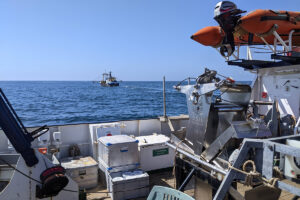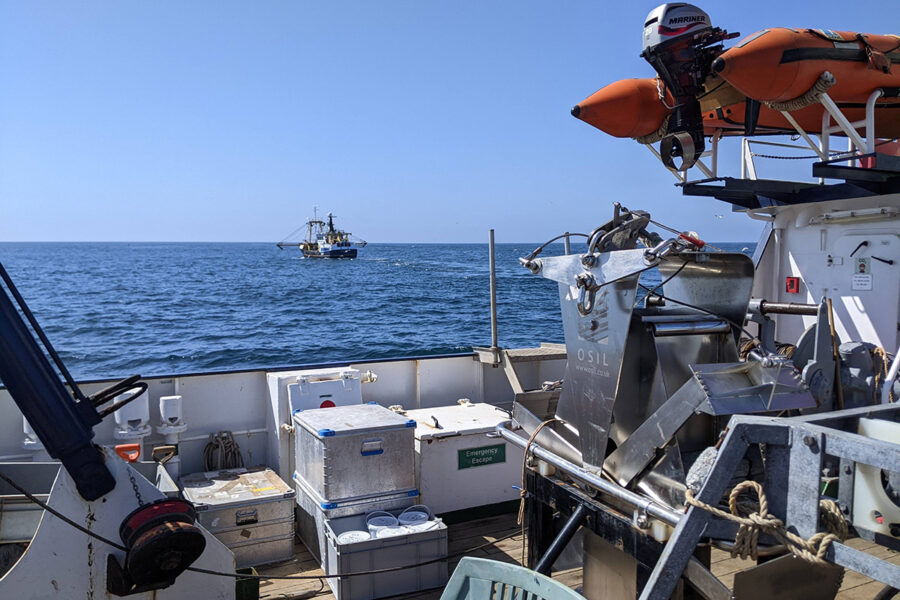A major new science paper published in the journal Nature last week may finally put an end to the endlessly repeated assertions that trawling ‘emits more CO2 than the world’s aviation industry’.
The claim was originally made in a paper published in 2021, that subsequently was withdrawn – costing the chief scientific advisor at the White House, who had reviewed the paper and recommended it for publication, her job.
‘Sala et al 2021’, as it has been referred to ever since, has become the go-to reference for a multitude of anti-fishing stories, most of which summarise the findings as ‘trawling releases huge amounts of blue carbon’, failing to mention that the authors themselves withdrew those findings.

Fishing News reported recently on ground-breaking new work being led by South West beamers and scallopers to assess the ‘blue carbon’ footprint of their vessels – including the Brixham scalloper Golden Promise, viewed here from the deck of the Bangor University research vessel Prince Madog.
The new paper, led by a Bangor University scientist, Professor Jan Hiddink, concludes that only a very small fraction of seabed carbon reacts to trawling disturbance.
“The carbon benefits of ending bottom trawling have been massively overstated in the Sala et al paper,” Hiddink said. “While bottom trawling undoubtably disrupts the natural carbon fluxes and disturbs the bottom-dwelling sea life, seabed carbon flows are highly complex and need further research.”
Reviewing 49 other studies on seabed carbon and trawl disturbance, the authors found very varied results. Sixty percent of the studies failed to find any significant effect, with 29% finding lower organic carbon, and 10% finding more.
Professor Hiddink argues that the Sala paper combined figures for fresh carbon on the sea surface with the much less reactive carbon stored in the deeper sediment. As the surface layer carbon will be converted to CO2 in any case, assuming it is affected by trawling makes no sense, and massively inflates the estimated CO2 emissions.
He suggests a figure that is a factor 100 to 1,000 times lower than calculated in the original paper – which continues to be quoted as ‘evidence’ in favour of a wider ban on mobile fishing gears by many environmental NGOs.
“We don’t know enough about what bottom trawling does to seabed carbon stores to be able to make robust global estimates about the effects of bottom trawling,” said Jan Hiddink.
“Using these figures is worrying, as many governments and others are proposing banning bottom trawling and using the ‘carbon credits’ to offset other activities – but if the carbon emissions are overestimated by several orders of magnitude, we risk increasing overall CO2 emissions while reducing the global food supply.”
This story was taken from the latest issue of Fishing News. For more up-to-date and in-depth reports on the UK and Irish commercial fishing sector, subscribe to Fishing News here or buy the latest single issue for just £3.30 here.
Sign up to Fishing News’ FREE e-newsletter here.








